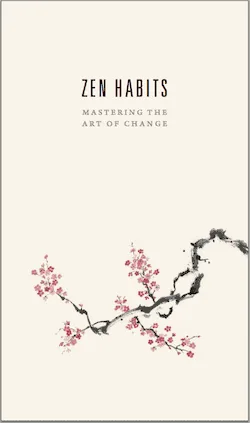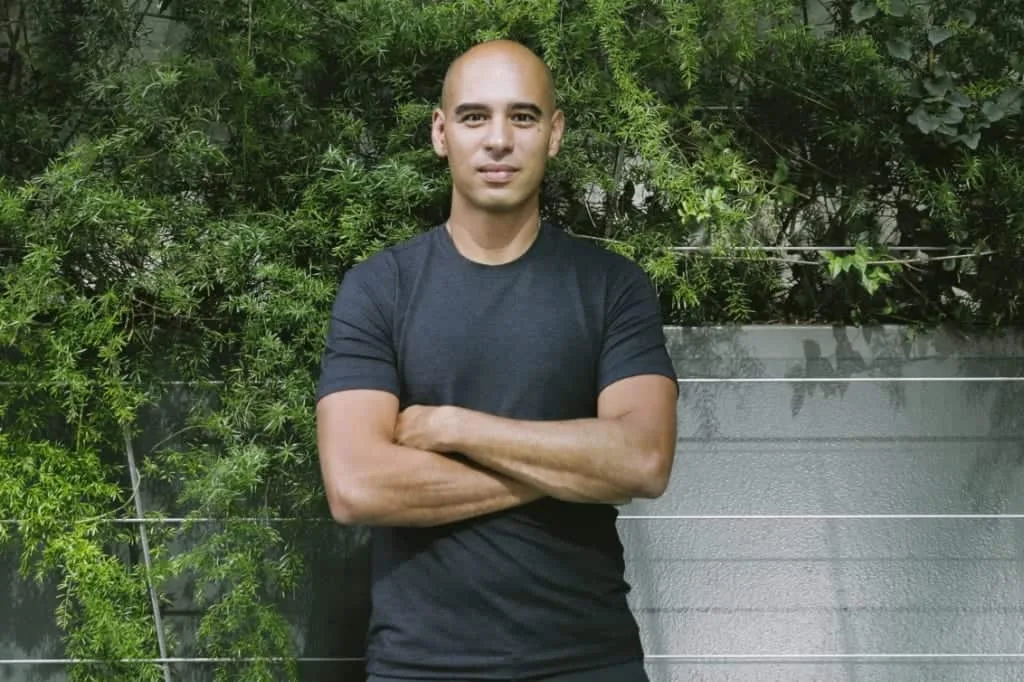I believe in the importance of habits and routine. You can’t make impossible things possible without making small steps and small changes. Though on their own they may be small and (seemingly) insignificant, over time they build toward something: a new way of being, the birth of a new business or project, overcoming a long-standing obstacle, or finding the kind of work that you want to give your life to.
Leo Babauta has helped more people think about and build healthy habits than anyone else I know. He is an expert in life change through habits. I can’t stay away from his blog, Zen Habits. He is a minimalist, a father of six, a vegan, the author of a handful of books, and a fantastic guy.
I got the chance to interview him about building habits and his new book (which is live on kickstarter right now!), Zen Habits.
An Interview with Leo Babauta of Zen Habits: Mastering the Art of Change

Dan: Leo, you know the ins and outs of building habits, but before we get there I’m curious if you could speak to how to decide what to pursue/change and which habits to build? If someone wants to change their life or career but doesn’t know where to start, what would you recommend?
Leo: There’s no perfect path. You can’t know what habit would be best to start with, because there’s no way to predict how the future will turn out with various habits you might change. So I recommend not worrying about starting with the perfect habit.
Instead, take the longer view: over the course of a year, if you changed one habit a month, you’ll have 12 new habits. Over two years, 24 new habits. Of course, you probably won’t keep all 24 habits, but if you stick with most of them your entire life will change. So it doesn’t matter which habits you start with — what matters is learning to stick with any habits, and over the long run you’ll change everything you want to change.
That said, a few habits help build other habits: meditation, because mindfulness helps change any other habit; exercise, because it teaches you about dealing with discomfort and improves your health; learning to focus on one task at a time, because it teaches you about not following your urges; and blogging, because self-reflection helps improve your ability to make changes.
Dan: That’s a great recommendation. Generally, building habits can be difficult. What have you found to be the hardest part about building new habits? What difficulties should someone expect along the way?
Leo: Assuming you’ve overcome the initial resistance and you’ve started the habit … the next hardest part is overcoming the resistance to doing it on days when you just aren’t feeling it. What do you do on those days? And how do you handle the days you missed — do you feel like a failure and feel guilty and give up? There are other difficulties too: facing opposition from other people in your life, negative self-talk and rationalization, disruptions like travel and family crises and illness …
These are all difficulties, but they can all be handled. The mistake is to think that there’s something wrong with you if you mess up. No … you messed up because there’s some difficulty you haven’t learned how to handle yet. That’s like feeling bad because you turned on a computer for the first time in your life and don’t know how to program it. You’ll learn — just give yourself some space to make mistakes and learn from them.
Dan: Are there habits you’ve started that you’ve given up on?
Leo: Lots! I’ve failed at many habits — that’s how I learn! I’ve started learning languages and programming and given up, I’ve started diets and exercise programs and given up, I’ve started and stopped meditating like 10 times. But these days, I don’t beat myself up about them. We’re all learning!
Dan: That’s good to hear from someone with as much experience as yourself. It’s good to know I’m not the only one who quits things! In a similar direction, it seems like there is a fine line between holding yourself to a habit and being easy on yourself when you need it. How do you balance staying with your habits and having self-compassion?
Leo: The key skill for learning habits is learning to adjust as you go. So holding yourself strictly is great if it works, but if something comes up and you need to take a break, then take a break. Adjust, don’t stick rigidly to a plan. If your parent gets sick and you need to go deal with that, why stress out about your exercise plan? Deal with the life crisis, then adjust your habit plan once that’s done. When we expect ourselves to be perfect, we get into trouble. That said, if you just give up and don’t adjust, that’s not going to help you.
Dan: I’m excited about the new book, Zen Habits: Mastering the Art of Change. Can you tell us more about it?
Leo: I really wrote this book for me, but 9 years ago, when I was struggling with debt and my health and procrastination and much more, and didn’t know how to change. I still remember how bad that made me feel, and how undisciplined I felt, and how stressed out I was. I know there are others like me, and this book is for all of you. If you struggle with change, or are facing a major life change, or are facing a loss of any kind … this book will help.
Dan: I love the sound of it and can’t wait to read it! I’ll add a link so readers can find out more. But before we go, do you have any favorite posts that you could recommend for people who may not be as familiar with your work?
Leo: I’ve written so many posts (more than a thousand), but here are a few to get you started:
- Advice to My Kids
- Seized by the Thunderhold of Fear
- The Smart Way to Stick to Habits
- The Lies Your Mind Tells You to Prevent Life Changes
- The Way to Be
Dan: Thanks so much for your time, Leo!
Leo’s new book, Zen Habits: Mastering the Art of Change, is on Kickstarter right now. I’d love for you to join me in supporting this project. You can find out more about the book on his site or go straight to the Kickstarter page.


